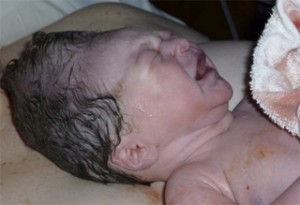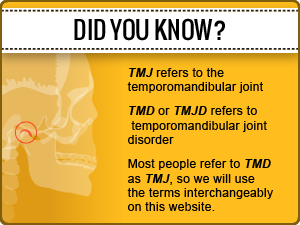Skull Deformation
(Maladaptive Skull Syndrome)Skull deformation can cause TMJ
 Do you have a child that seems to always complain about their head hurting? Does your little one have pain or difficulty when chewing?
Do you have a child that seems to always complain about their head hurting? Does your little one have pain or difficulty when chewing?
If you have a young child or teenager complaining about their jaw popping, clicking or getting stuck when they eat, laugh or yawn, they may be suffering from some type of dysfunction or misalignment in their jaw joints.
TMJ is most often defined as a disorder seen in adults, but it may surprise you to learn that many children suffer from this painful dysfunction of the jaw as well. This is sometimes due to a skull deformation occurring at birth, and this can, unfortunately, cause TMJ.
Do I have TMJ Disorder?
Symptoms include migraines, neck pain, jaw pain, lower back pain, snoring, sleep apnea. Use our Free TMJ Disorder Assessment ToolsHow can skull deformation cause TMJ?
The process of entering and moving through the narrow birth canal can result in a great amount of pressure being exerted on a baby’s skull. This is especially true when the baby delivers in a head-first position. The excessive force experienced while the bones are still soft and pliable may result in a misalignment of your baby’s jaws and skull bones. Epigenetic changes can also creat maladaptive changes over time due negative environmental factors.
It is important to remember that every part of the skull is interconnected, including the bones, muscles, ligaments and joints. Because of this connectivity, any alteration during the growth and development of your baby’s skull can result in misalignment of the jaws and an early onset of TMJ.
When this type of jaw misalignment happens, it often goes unnoticed until the child is older and can better communicate the symptoms they are experiencing. Dr Shapira has lectured internationally of how environmental changes can effect development and lead to TMJ and to sleep disorders.
What are some common symptoms of TMJ?
There are many signs and symptoms that present with a dysfunction of the TM joints. You may have only a few of these, especially if your TMJ is still in the early stages of development.
These symptoms may include:
- Chronic headaches or migraines
- Pain or ringing in the ears
- Tired or aching jaw and facial muscles
- Neck strain
- Difficulty concentrating
- Dizziness
- Clicking, popping or grating noises in the jaw joint while chewing, yawning or making facial expressions
- ADD and/or ADHD
- Dark circles under the eyes and associated sinus and circulation problems
How do you diagnose and treat TMJ?
 No matter what age you or your child are when you first begin experiencing symptoms that may be related to TMJ, the first step is always to try and determine the root cause of your pain and suffering.
No matter what age you or your child are when you first begin experiencing symptoms that may be related to TMJ, the first step is always to try and determine the root cause of your pain and suffering.
Treatment with the DNA Appliance and Epigenetic Orthodontics may be the single best treatment for deformative problems.
To accomplish this, we conduct a thorough examination, including a detailed medical history. After reviewing the results of these tests, we will discuss the best plan of treatment for you.
Examination may include:
- Full medical history
- Jaw alignment and range of motion testing
- Physiologic Dentistry diagnostic testing
- Skeletal structure
- Dental structure
- Neurological examination
- Other diagnostic tests, as recommended
Learn more
It is only natural to have questions. Our free e-book about TMJ is available to download today and has the answers to many of those questions.
If you still have concerns after reading our brochure or suspect that you or your child might have TMJ disorder, please contact our office at your convenience and schedule an evaluation.


0 Comments